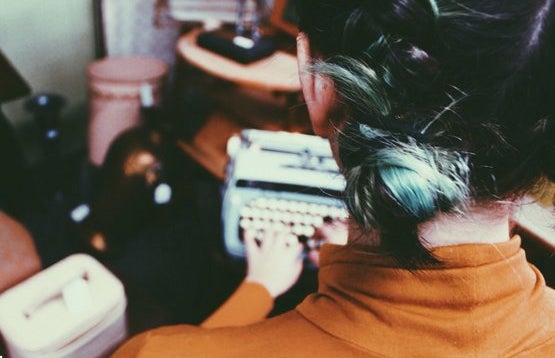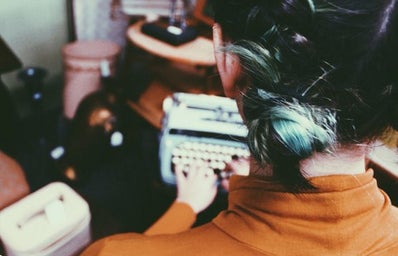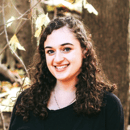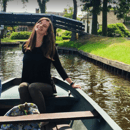COVID-19 has morphed from a distant news story to a pandemic touching every part of my life. Classes are canceled for at least the week of March 16th (and possibly after), many seniors’ job application processes are halted due to the disrupted economy; and generally, I now have what feels like eons more free time alone than I know what to do with. Seeing as uncertainty and lack of structure make me want to tear my hair out, I knew I needed to come up with a personal game plan on keeping busy to avoid going stir-crazy over the next few weeks. Students, job-seekers, and others may be in the same situation as me in this confusing time; so I thought I would share some ideas while the world outside feels increasingly like 28 Days Later.
- Teach myself an instrument
-
Growing up, I plunked around on my family’s grand piano, but never made a sustained effort to learn much on it. I have a rudimentary understanding of sheet music, as well as a solid ear, so one way I can expand my brain is to learn some new pieces—from classical to jazz to pop. Right now, I’m learning “To A Wild Rose.” According to pianoemporium.com, playing the piano for even just a few minutes a day can improve self-esteem, positive feelings, and reduce risk of depression. Similar neurological benefits exist for learning other instruments, from the guitar to the mellophone. Considering the world feels so bleak right now, I think we could all use a brain boost from taking up a new musical hobby.
- Practice my writing skills
-
During a lull, like a school vacation, I remind myself to sharpen the skills I’ve learned in college outside of my Communications classes. Admittedly, during these breaks it’s tempting to let my brain atrophy, but I always feel better when I’m creating in my free time, not just passively absorbing things. So, I’m going to spend at least 15-20 minutes writing every day, either using a prompt or brainstorming my own topics. I tend to give up on projects if they don’t immediately make me feel inspired and passionate. But great writing isn’t always born out of a spontaneous creative spark. It’s a skill that needs to be cultivated through regular practice, even if I’m not motivated to all the time, because that practice will build to pieces I’m proud of in the future. And what better time to practice than right now?
- Researching outlets to submit my work
-
We exist in a growing “gig economy,” which trends toward temporary, contract/freelance, and often remote positions. While in stark contrast to our society’s idea of a 9-to-5 on-location job, the gig economy offers its own unique benefits for workers: freelance writing allows for self-employment, and gig writers can choose their own clients, set their own schedules, and work in a way that suits them best. I’ve been applying to full-time jobs, but in an unstable economy like this, freelancing could allow me the autonomy to create my own work in the meantime. I’m getting to know publications that align with my interests in health, science/tech, feminism, and social issues that I can pitch stories to in the future. If you have a skill that you could offer others, consider planning how you could market yourself as a freelancer. You could create a web site or portfolio, start searching for freelance jobs, or approach possible clients with a pitch for your services. I can’t guarantee the security of any position like this right now, but I’m using my own free time to brainstorm.
- Cook
-
I won’t go as far as to say “let food be thy medicine,” but at least for me, cooking can be a very therapeutic activity. Experimenting with new dishes and nourishing my body with different nutrients makes me feel productive and healthy. I’m fortunate enough to have access to my kitchen at home, and live within walking distance of a grocery store, so I’m using my time to try out new recipes. Some great resources are Bon Appetit and the Minimalist Baker. Practicing how to whip up great recipes quickly will help make meal prepping as a commuter student a lot easier and faster once my schedule gets back to normal.
- Exercise
-
In a similar vein, exercise can be a constructive way to deal with the stress brought on by a crisis of this scale. In addition to improving our physical health, like reducing risk of heart disease and certain cancers, exercise releases chemicals inside our bodies that promote cognitive skills and relax the mind and body. It’s also just something good to do with free time. If you’re squeamish about going to the gym, try going for a walk or run around your neighborhood, taking a hike, following some videos on YouTube like Cassey Ho’s workouts (she even has apartment/dorm-friendly ones!), or even just dancing around. Exercise is something that I enjoy—the point is to get up and move, and have fun doing it. Like any other skill, I may not be motivated to exercise all the time, but I always thank myself for it afterward.
- Experiment with aesthetics
-
I always want to look more put together than I usually do, but I rarely get time to plan ensembles during my normal schedule, and just end up wearing whatever is clean and closest on hand in the morning. So, I’m compiling Pinterest boards of style inspiration, trying on different combinations of clothing/“shopping my closet,” and seeing what looks best. I can break out the ‘fits once people start populating the streets again, but until then, I’ll experiment and be fashionable for myself and my cats.
- Read
-
During every school break I’ve had in college, I always tell myself to read more for pleasure, since I don’t get to as much when classes are underway. Sometimes I’m better at this than other times, but there’s never been a better time to learn more about the world through books and journalism. Right now, I’m reading And The Band Played On by Randy Shilts—it’s about the AIDS epidemic, and is a public health parable very relevant to today’s crisis. I also use Goodreads to keep track of books on my wish list.
I’m planning on utilizing my public library and free PDFs as much as I can to save money. Additionally, databases like The Gutenberg Project and OpenLibrary.org have thousands of classic and contemporary books you can read for free. I also love used bookstores, and now more than ever it’s important to support these small businesses if you’re able—a great one in Cambridge is Raven Used Books.
We are facing an unprecedented pandemic response in the United States, and just as strongly at Simmons. I, for one, am frustrated, confused, and scared about what’s going to happen in my life and in my community over the coming months. For now, all we can do is focus on finding meaning, hope, and growth, one day at a time, and try to entertain ourselves in the meantime.



